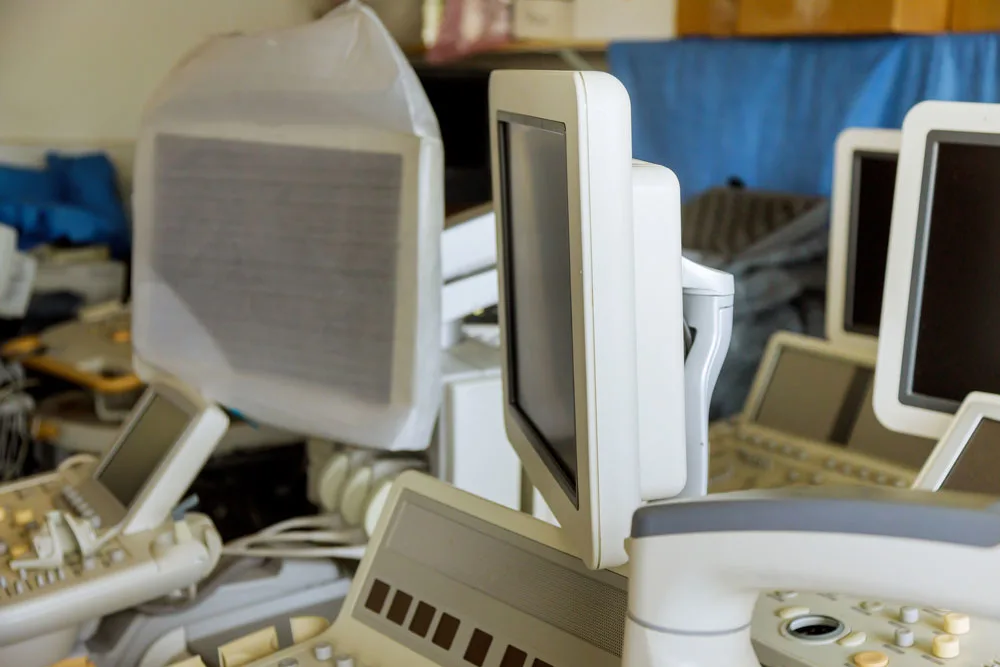The Environmental Impact of Medical Equipment Leasing: Reducing Waste and Promoting Sustainability in Healthcare

Though the healthcare industry plays a vital role in safeguarding lives and promoting well-being, it is also a significant contributor to environmental issues–generating large amounts of waste and consuming vast resources. One area that often is overlooked is medical equipment procurement and management.
However, there has been a growing shift towards medical equipment leasing as a sustainable alternative to traditional purchasing methods in recent years.
Let’s explore the environmental impact of medical equipment leasing companies and highlight their benefits in terms of waste reduction and promoting sustainability in healthcare.
Reducing E-Waste
Electronic waste, or e-waste, poses a severe threat to the environment due to its toxic components and difficulties in proper disposal. Traditional medical equipment purchasing leads to a rapid turnover of outdated technology, resulting in significant e-waste generation. But leasing offers a solution by extending the lifespan of medical equipment.
Instead of purchasing new equipment when technology advances, healthcare facilities can simply upgrade their leased equipment, reducing the overall e-waste generated.
By choosing leasing options, healthcare providers contribute to more efficient and sustainable equipment utilization, ensuring maximum lifespan, thereby minimizing waste. At the end of the lease term, the leasing company can refurbish, repurpose, or recycle the equipment, minimizing the amount of e-waste sent to landfills.
Energy Efficiency
Medical equipment, particularly advanced imaging systems and surgical devices require substantial energy consumption. However, medical equipment leasing companies prioritize energy-efficient equipment, providing healthcare facilities with more environmentally friendly options.
Leased equipment often incorporates energy-saving features, such as low-power modes and automatic shut-off functions, which help to reduce electricity consumption. By opting for energy-efficient medical equipment through leasing, healthcare facilities decrease their carbon footprint and contribute to a more sustainable future.
Resource Conservation
Medical equipment manufacturing is resource-intensive, requiring various raw materials, energy, and water. Leasing can help conserve these resources by reducing the demand for new equipment production. When healthcare providers lease instead of purchase, they reduce the need for new manufacturing processes, which results in decreased resource extraction and associated environmental impacts.
Additionally, leasing companies often take responsibility for maintenance, repairs, and equipment upgrades. They have the expertise and incentive to ensure the equipment is well-maintained, prolonging its lifespan and reducing the need for replacements. This proactive approach reduces resource consumption and lowers the environmental impact of manufacturing new equipment.
Financial Savings for Sustainability Initiatives
Leasing medical equipment provides financial benefits for healthcare facilities, which can be redirected toward sustainability initiatives. The upfront costs of purchasing new equipment are significantly higher than lease payments.
By leasing, healthcare providers can allocate more resources to environmental sustainability projects, such as waste reduction programs and staff education on sustainable practices. These investments yield long-term benefits by reducing operating costs and minimizing environmental impact.
Flexibility and Scalability
Medical equipment leasing offers flexibility and scalability, which can lead to more sustainable practices. As healthcare needs evolve, leasing allows facilities to adapt quickly by upgrading or replacing equipment. This adaptability enables healthcare providers to implement the latest technologies that are more energy-efficient and eco-friendly, reducing the environmental footprint of their operations.
Collaborative Partnerships
Leasing medical equipment fosters collaborative partnerships between healthcare facilities and medical equipment leasing companies. Such partnerships can lead to shared goals and initiatives for sustainability. Leasing providers have expertise in managing equipment lifecycles and can offer guidance on ecologically friendly practices.
By working together, healthcare facilities and leasing companies can develop innovative solutions to reduce waste, minimize energy consumption, and promote sustainable healthcare practices.
As the healthcare industry strives to minimize its environmental impact, medical equipment leasing emerges as a viable solution. By reducing e-waste, conserving resources, promoting energy efficiency, and fostering collaborative partnerships, medical equipment leasing companies enable healthcare facilities to make significant strides in promoting sustainability.
Healthcare facilities must recognize their environmental impact and embrace innovative solutions like leasing to reduce their carbon footprint. By adopting resource-efficient practices in medical equipment management, the healthcare industry can lead by example and contribute to a greener future for patients and the planet.
Ready to take the next step towards a more sustainable healthcare future? Connect with Med One for reliable and flexible solutions in medical equipment financing, leasing, and rentals, including hospital equipment rental. Join us in reducing waste, conserving resources, and promoting sustainability in the healthcare industry. Contact Med One now.
